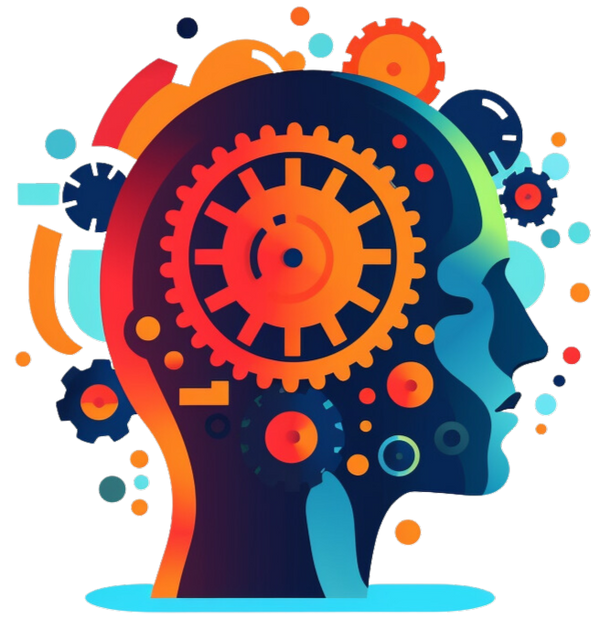
ADHD & Ableism: Only apparent tolerance, but real consequences
Share
Societal ignorance and prejudice make the lives of people with ADHD unnecessarily difficult. But this "ableism" doesn't just harm those affected—it costs us all valuable talents.
In a world geared toward standardization and administrative "decathlon," people with ADHD face countless invisible obstacles. Ableism—defined as prejudice and discrimination against people with disabilities —shapes their everyday lives and hampers their participation. Although ADHD (at least mild/moderate) is less a disability than a neurological diversity, it has consequences for everyday life. Because people with this diagnosis are simply "ticked differently."

What is ableism in ADHD?
Ableism is particularly evident in people with ADHD: Their challenges—such as a sense of time, organization/administration, attention, impulsiveness, nervousness/drivenness—are ignored or trivialized. Unlike with visible limitations, there is a lack of recognition that people with ADHD struggle with existing structures on a daily basis—even if these struggles are not always immediately obvious ("social masking," pressure to conform).
Instead of showing understanding, many outsiders approach the diagnosis with skepticism. ADHD is dismissed as a "trend," and those affected are labeled as lazy or undisciplined, as well as arrogant or querulous. This lack of understanding increases the pressure on people who already struggle to navigate a neurotypical world.
The phenomenon isn't new either. Just over 50 years ago, left-handed people were forbidden to use the "wrong hand"—or at least encouraged to "learn it properly." And for a long time, depression was something lazy people used as an excuse to avoid getting up in the morning.

Social Prejudice: When Ignorance Hurts
People with ADHD struggle with these deeply ingrained stereotypes. They are often labeled as disorganized, unreliable, or hyperactive. Such prejudices completely ignore the neurological basis of ADHD and reduce those affected to supposed character flaws. Particularly widespread is the view that ADHD is not a "real" diagnosis, but merely an excuse for bad behavior (due to poor parenting or a malicious character).
In short, those who think or work differently are quickly perceived as a problem rather than a valuable addition. This attitude not only hinders inclusion, but also prevents people with ADHD from fully realizing their potential.

School: The first contact with ableism
Children with ADHD experience ableism firsthand in the education system. Rigid school systems rely on conformity and sitting still for 45 minutes until a short break (even if the tasks are boring) – a concept that many people with ADHD find difficult to fulfill. The focus on meaningless things, overly rigid classroom structures, and the required quiet behavior completely overwhelm them – while individual support (developing strengths, mitigating weaknesses) is lacking. Teachers often misinterpret the symptoms (chattering, disruptive behavior) – and consequently interpret them as indiscipline or laziness.
The consequences are far-reaching: Children and adolescents with ADHD develop the feeling of not being good enough at an early age. A lack of support and constant criticism rob them of their self-confidence and negatively impact their academic and social prospects. With medium or high intelligence (and some family structure), this equation may work. The "rebel" later becomes a specialist, a professor, a small business founder, a surgeon, a top-notch craftsman, a horticultural artist, etc. With less favorable circumstances, things play out differently: school dropouts, institutionalization, drug use, violent crimes, and imprisonment, for example (ADHD in the general population: 5%; in prisons: 20-30%).
Working world: Prejudices that slow down careers
The pattern from school continues in the workplace. People with ADHD experience discrimination from colleagues and superiors who disparage their work practices as chaotic, non-transparent, or inefficient. Flexibility and adapted work structures – which would help many affected individuals – are often still lacking. Instead, ADHD is interpreted as a weakness that hinders career advancement. Wherever perseverance and diligence are valued more highly than creativity, performance, and improvisational talent, people with ADHD will inevitably lose out.
All of these stereotypes also overlook the strengths that ADHD can bring: imagination, innovation, and the ability to devote oneself wholeheartedly to a task that excites one (against all odds). Unfortunately, such qualities often go unused because people diagnosed with ADHD end up in 8-to-5 jobs instead of more flexible work and contract arrangements.
Medical and psychological discrimination
Even in healthcare, people with ADHD encounter ableism. Professionals fail to take their symptoms seriously or attribute them to other causes. In some cases, those affected receive no diagnosis or are misdiagnosed (> depression, anxiety disorder), preventing access to effective treatment.
This ableist approach discourages many from seeking help again. The result is a vicious cycle of untreated symptoms and increasing stress. For those affected, this means not only psychological but also economic losses, as they are slowed down or blocked by the symptoms – or resort to self-medication (legal and illegal stimulants, alcohol to "come down").

Profound effects on life and psyche
Overall, ableism has far-reaching consequences that affect many areas of life:
- Social isolation and misunderstandings: People with ADHD often experience criticism and rejection. Friends, family, and acquaintances often misinterpret their behavior, leading to conflict. Many then withdraw to avoid further disappointment.
- Interpersonal stress: Partnerships and family relationships suffer from misunderstandings. Impulsivity or forgetfulness are interpreted as a lack of consideration or interest, even though they are part of the neurological disorder ADHD. The constant criticism puts a strain on both sides.
- Psychological consequences: Chronic rejection leaves its mark. Many affected individuals subsequently develop low self-esteem, anxiety disorders, or depression. Or they bottle up their anger internally. Either way, the pressure to "please be normal" often leads to inner exhaustion and resignation.
- Financial disadvantages: Professional instability and high medical costs place a strain on the financial situation of many people with ADHD, and ultimately on the general public (social security cases, etc.). If integration was (apparently) difficult, reintegration becomes impossible.
Together against ableism
The fight against ableism begins with all of us. Support groups and activists are doing valuable work to combat prejudice and promote a change in thinking. Awareness campaigns, legal initiatives, and political initiatives are helping to ensure that those affected receive more support and understanding.
But that alone isn't enough. Schools, employers, and medical facilities must recognize that adjustments aren't special requests, but necessary measures. Only then can we break down barriers and create a more inclusive society.

Conclusion: Diversity instead of prejudice
Ableism in ADHD is a barrier that holds back not only those affected, but society as a whole. It costs society MUCH more than modest but effective changes would cost.
A respectful approach to neurological diversity enriches us all. With empathy, openness, and a willingness to look closely, we would achieve a great deal. Many people with ADHD are humorous, unconventional thinkers whose entertainment value can trigger fits of laughter – when they're not providing a brilliant idea for the next project, product, or the necessary incremental improvement to a rigid process.
And most importantly, you won't get tired. You'll be in your element.



